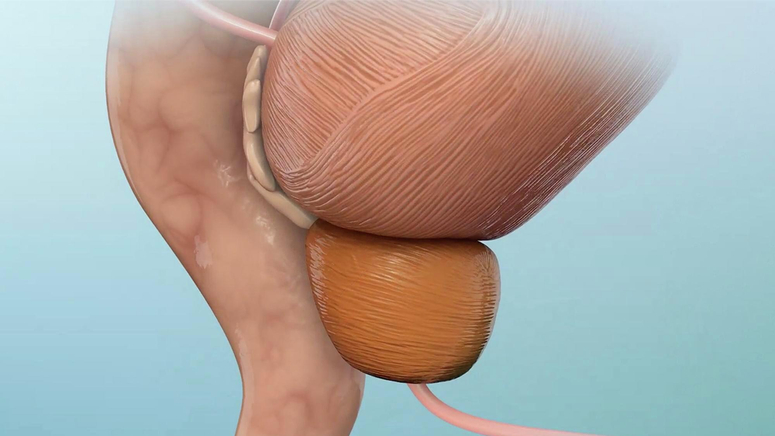
8 Of the Most Common Health Issues Facing Men
Did you know that the life expectancy for men in the United States is 73.5 years?
By making smart lifestyle choices, getting enough exercise, and eating and drinking correctly, you can increase your odds of living beyond the average life expectancy. Even so, there are some common health issues that men should be especially mindful of.
Continue reading to look at eight of the most prevalent health issues facing men today.
1. Heart Disease

Coronary heart disease is a serious health problem for men. The condition is the primary cause of death for U.S. men. In 2020, it was the cause of around one in every four male deaths. High blood pressure, excessive stress, smoking, unhealthy eating, and too much alcohol can increase your odds of getting heart disease. If you’re struggling with any of these risk factors, it’s best to get some help. Adopting healthier lifestyle choices can reduce your risks of getting America’s number one killer of men.
2. Diabetes
According to the American Diabetes Association, up to 17% of U.S. men have diabetes. It’s a condition that occurs when someone’s body is unable to produce or absorb insulin properly. Signs of diabetes in men include blurry vision, frequent urination, increased hunger and thirst, and fatigue. It’s vital to see a doctor if you think you might have diabetes. If you go in for yearly physicals, you can request that your doctor check your blood sugar level.
3. Cancer

According to the National Cancer Institute, the cancer mortality rate among men is 189.5 per 100,000 men. Unfortunately, there are many types of cancer, and the odds of you or someone you know getting a cancer diagnosis at some point in your lifetime is considerable. Prostate cancer, colorectal cancer, and lung cancer are primary causes of cancer-related passings.
But there are also less common, but particularly severe, forms of cancer. One example is pleural mesothelioma. Click here to learn more. While you probably have never heard of it before, it’s an aggressive type of cancer caused by inhaling asbestos fibers. Post-diagnosis, the life expectancy period is relatively short — perhaps a couple of years. But surgery, chemotherapy, or immunotherapy can help.
4. Stroke
Did you know that around 795,000 people suffer strokes each year in the U.S.? Most of those people are men. Meanwhile, of the nearly 800,000 strokes that occur every year, 137,000 people die due to the medical condition. When considering that stroke is a primary cause of disability and death in the U.S., you can appreciate the need to do what you can to lower your risks of getting a stroke. Risk factors include high blood pressure, cigarette smoking, diabetes, heart disease, high cholesterol, obesity, physical inactivity, drug abuse, and more.
5. Depression

The Anxiety Disorders Association of America says that north of 6 million men deal with depression every year. However, male depression is often underdiagnosed. One reason is that men often don’t seek help for their depression, so many go without treatment. If you’re dealing with depression or other mental health issues, see your doctor.
Getting professional help, learning how to deal with stress, and exercising regularly are some things that can help you deal with depression and other mental health issues.
6. Liver Disease
Chronic liver disease and cirrhosis impact around 4.5 million adults in the U.S. Men are more likely to die from the disease than women. What factors can lead to liver disease? Obesity, diabetes, drugs, excessive alcohol consumption, smoking, and unprotected sex can increase your odds of getting liver disease. But you can do some things to lower the risks of getting this ailment. Start with addressing the risk factors within your ability to change for the better.
If you have a liver ailment, your body will struggle to absorb nutrients, digest food, and eliminate toxic substances. The most prevalent liver diseases include bile duct cancer, viral hepatitis, and liver cancer.
7. Unintentional Injuries

Unintentional injuries are difficult to avoid since accidents sometimes happen. That’s one reason why accidental injuries, like car accidents or slip, trip, or fall mishaps, are among the leading causes of death in the U.S.
Unintentional injuries can cause traumatic brain damage, and many things can cause them. In addition to the abovementioned, other causes of unintentional accidents include natural disasters and physical activities. You’ll need to be on your guard to lower the chances of an accidental injury that hampers your quality of life or worse.
8. HIV and AIDS
Around 1.2 million people in the U.S. are living with HIV, a condition that can lead to AIDS. Most of those affected are men, and a startling 13% or so of those with HIV don’t know they have the condition. HIV isn’t the death sentence it was when it first arose decades ago. But it’s still nothing to take lightly since it can be fatal.
Symptoms of HIV in men include fever, fatigue, swollen lymph nodes, chills, muscle aches, sore throat, night sweats, and more. It’s important to get tested if you think you might be inflected.
Also, consider that there are things you can do to reduce or eliminate their risks of getting the illness. If you are sexually active, avoiding having multiple partners is best. And using protection can help reduce the odds of being infected or infecting someone else. Risky or careless behavior can increase your risk of getting infected.
Be Mindful of Risk Factors and Safeguard Your Health
These are some of the top medical conditions you need to be mindful of if you’re a man. That’s not to say that there aren’t others. But the five mentioned above will give you an indication of what you’re up against.
The good news is that there are things you can do to lower your risks of getting the types of medical conditions mentioned above. And there are things you can do to regain a good bill of health if you’re ever diagnosed with severe medical issues. One of the best things you can do for your health is to schedule a doctor’s appointment for a check-up. Getting an annual physical done will uncover any problems you must tackle.